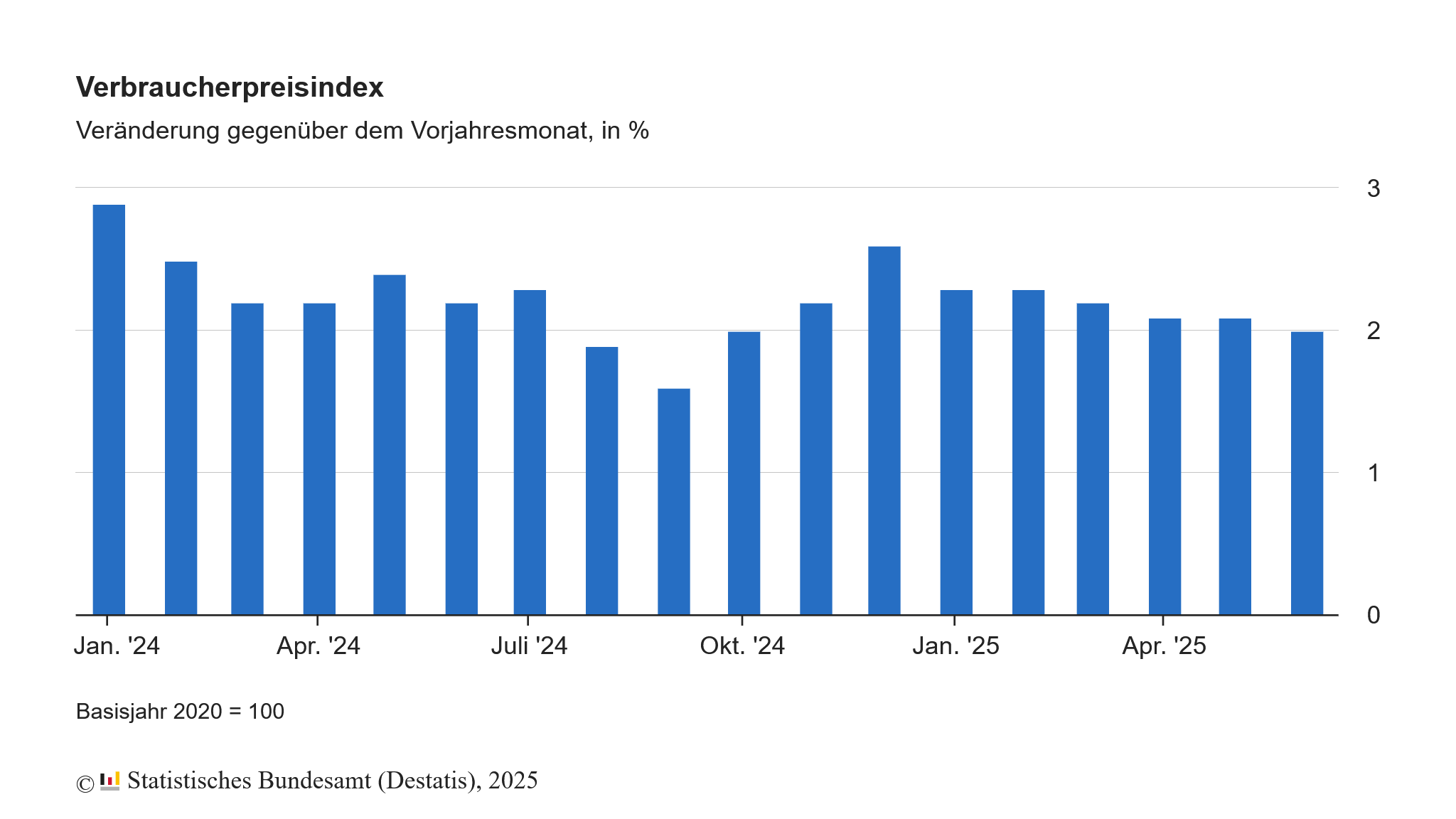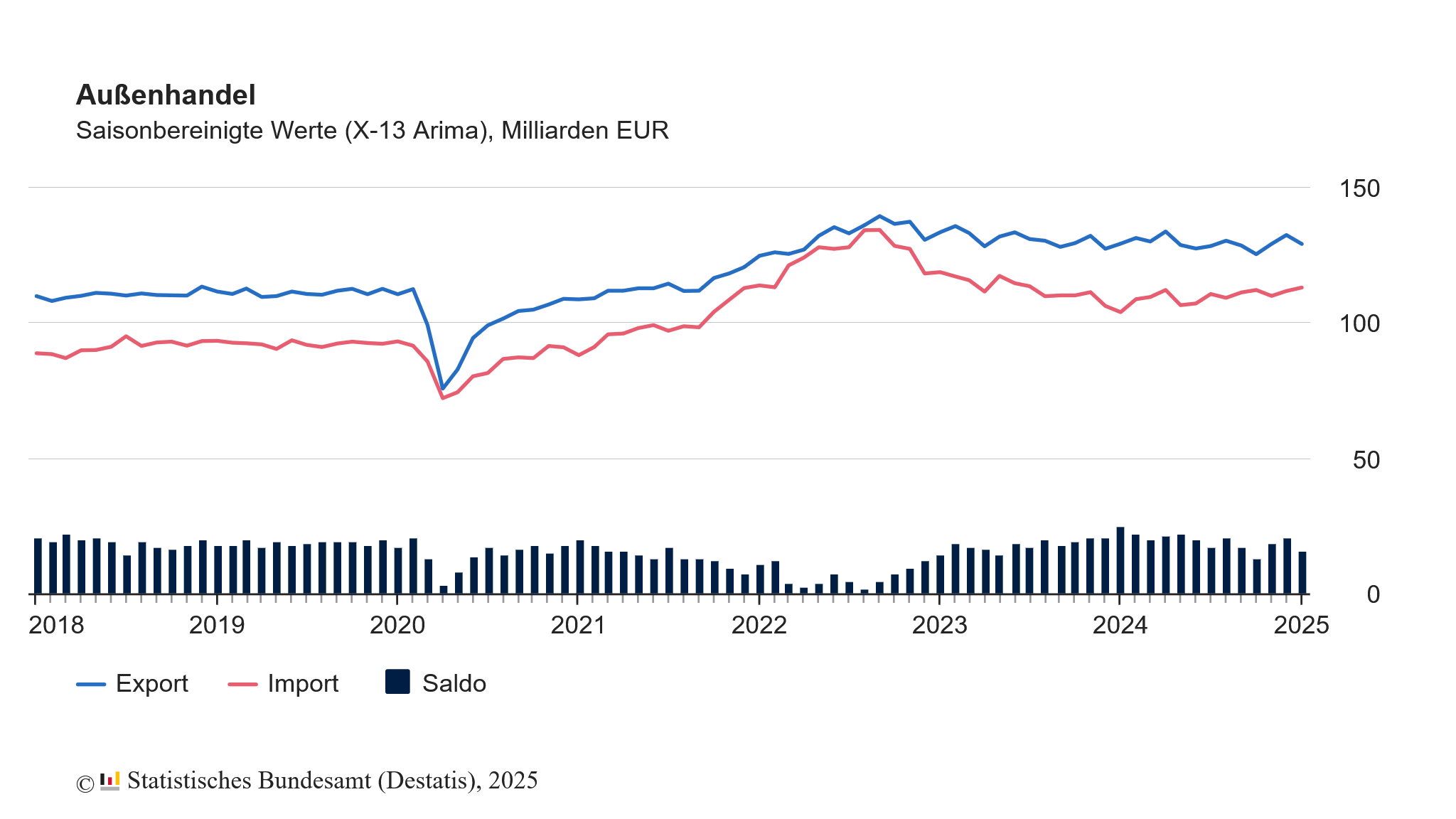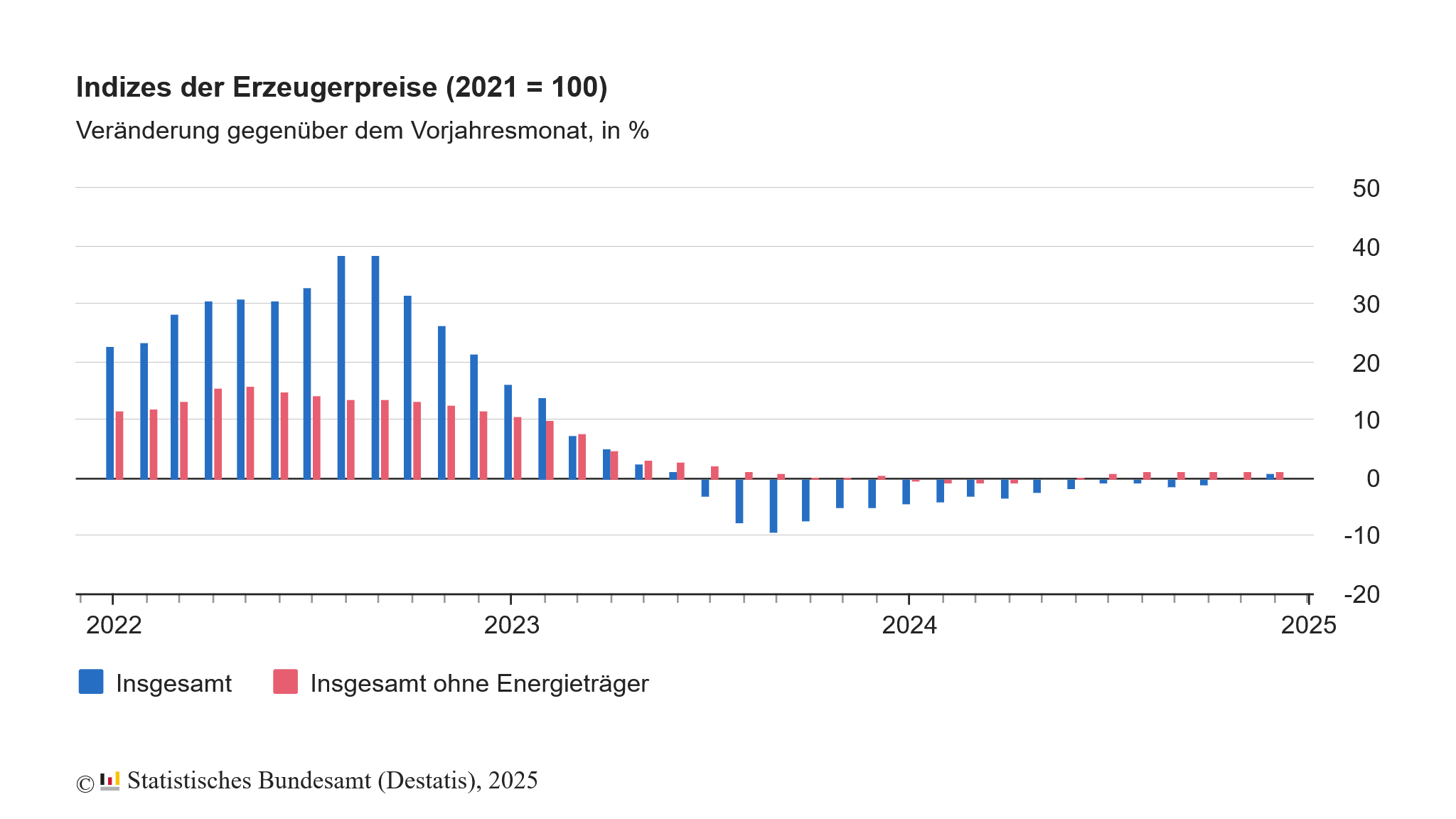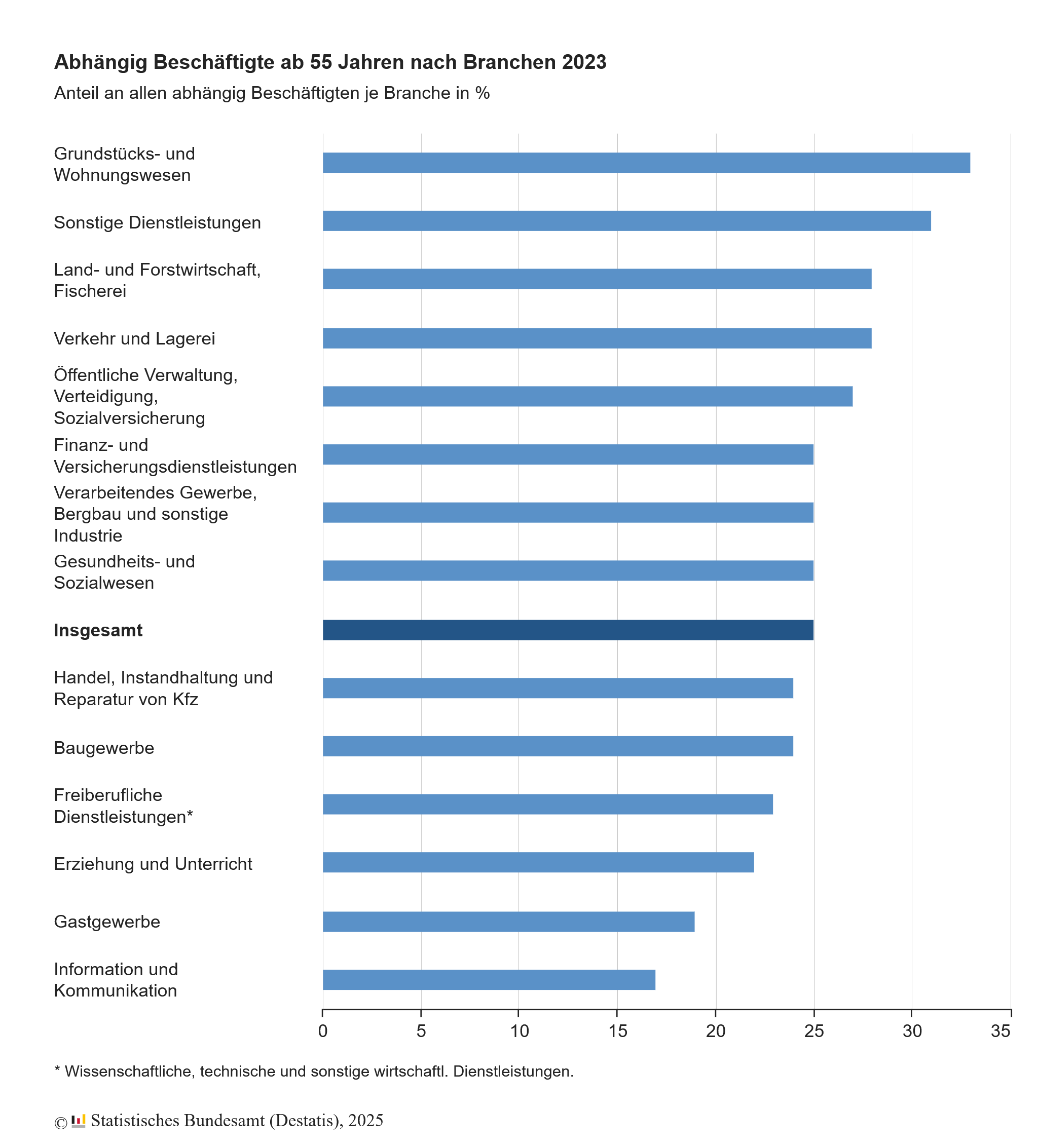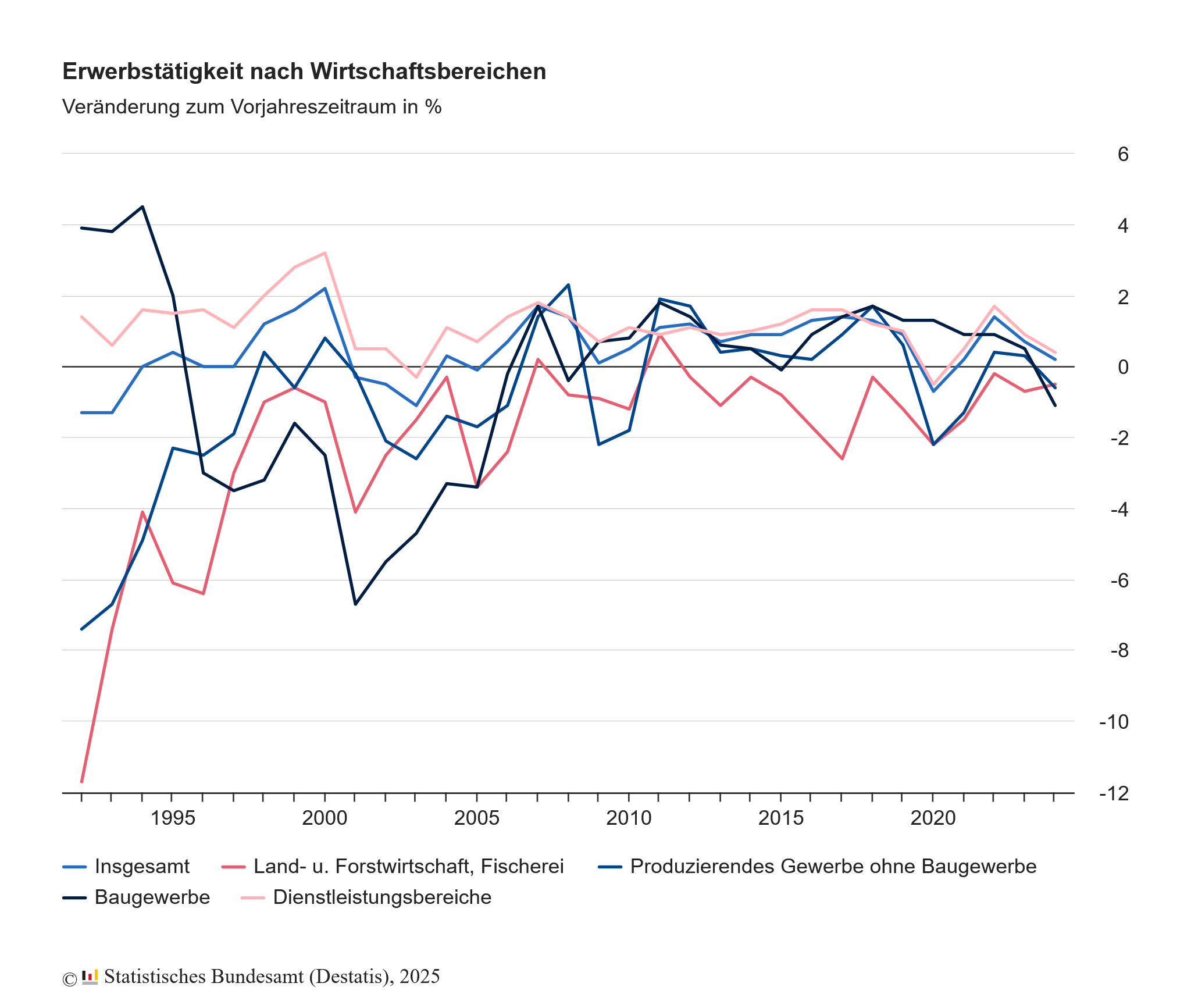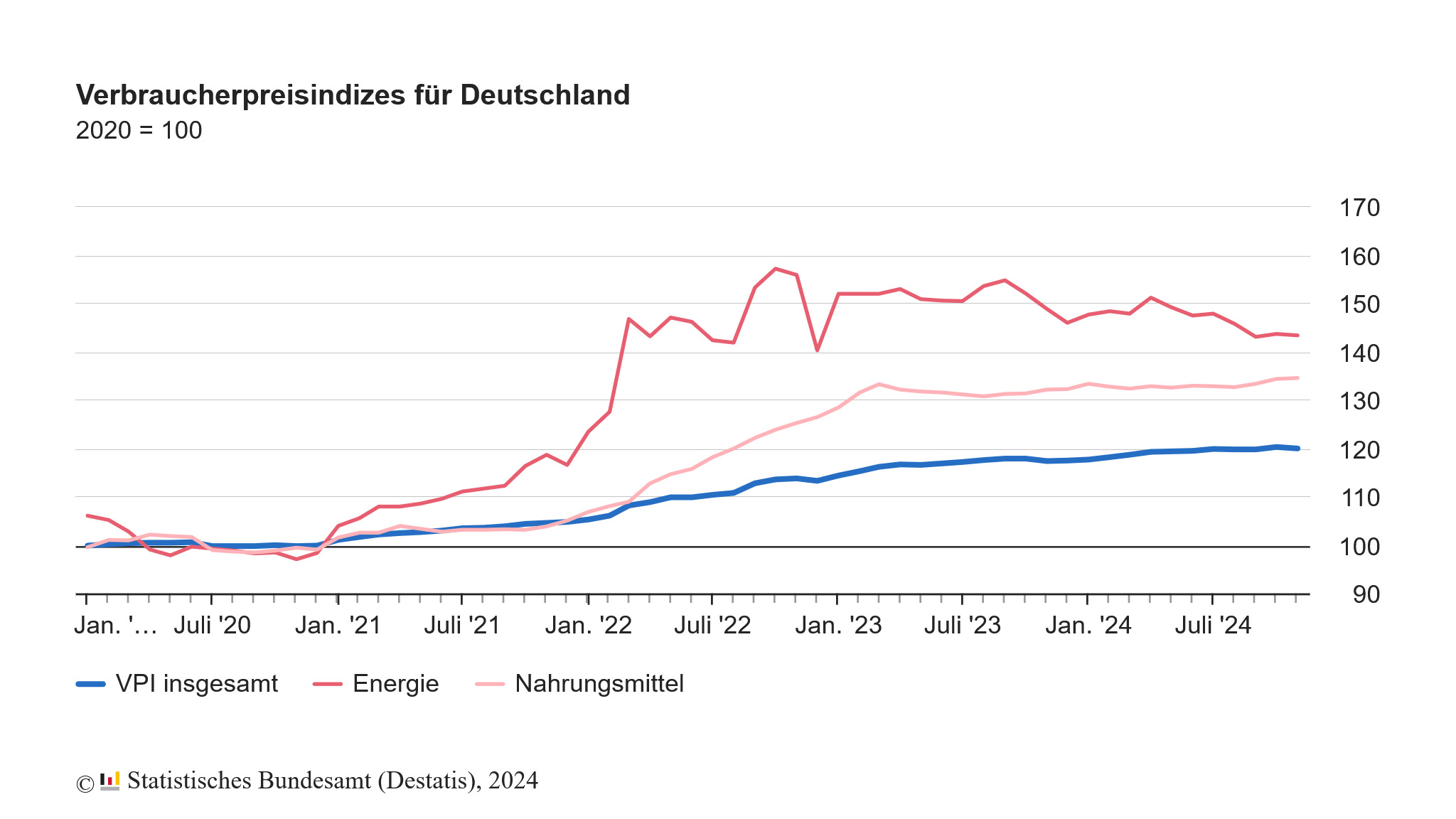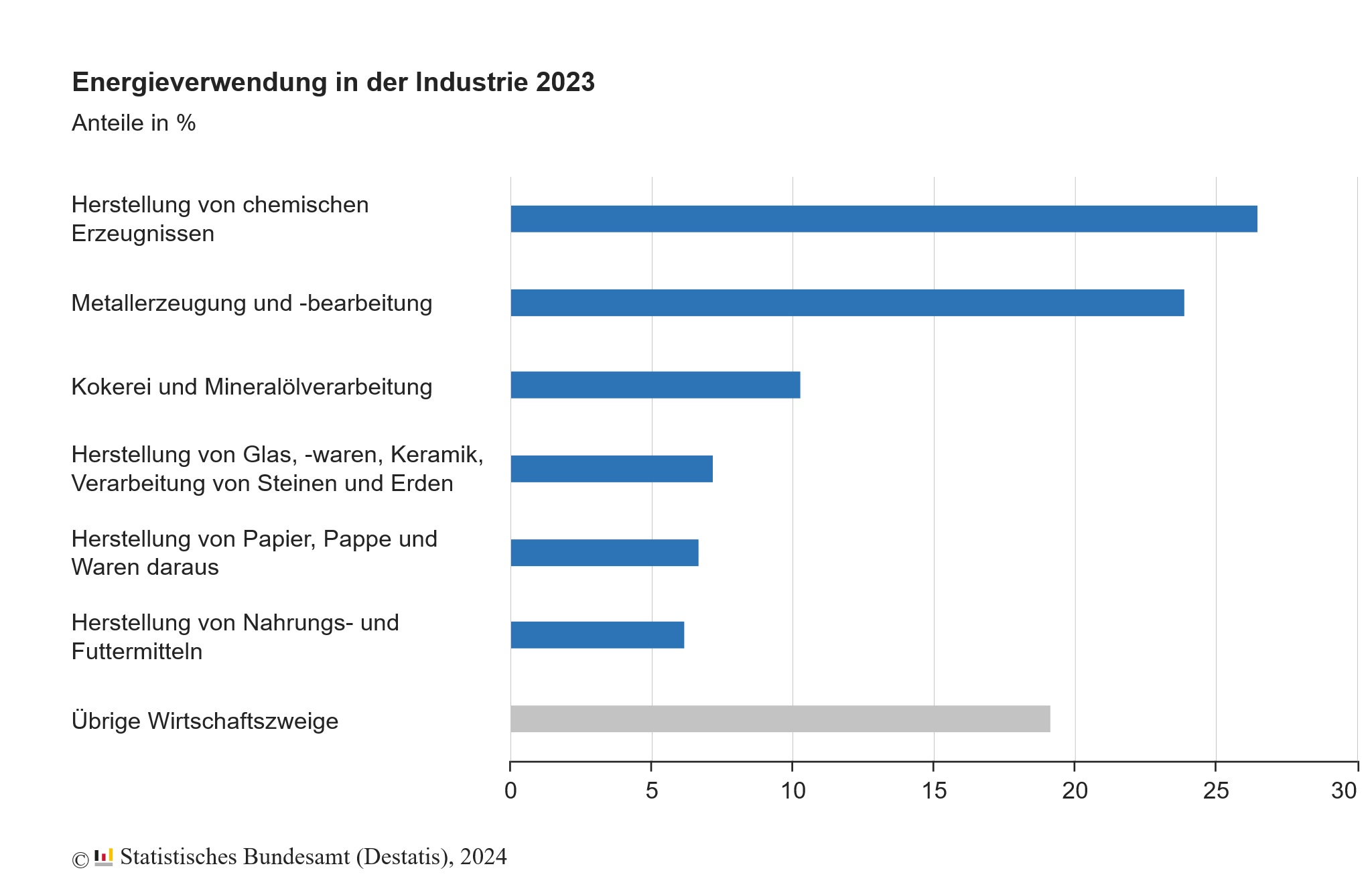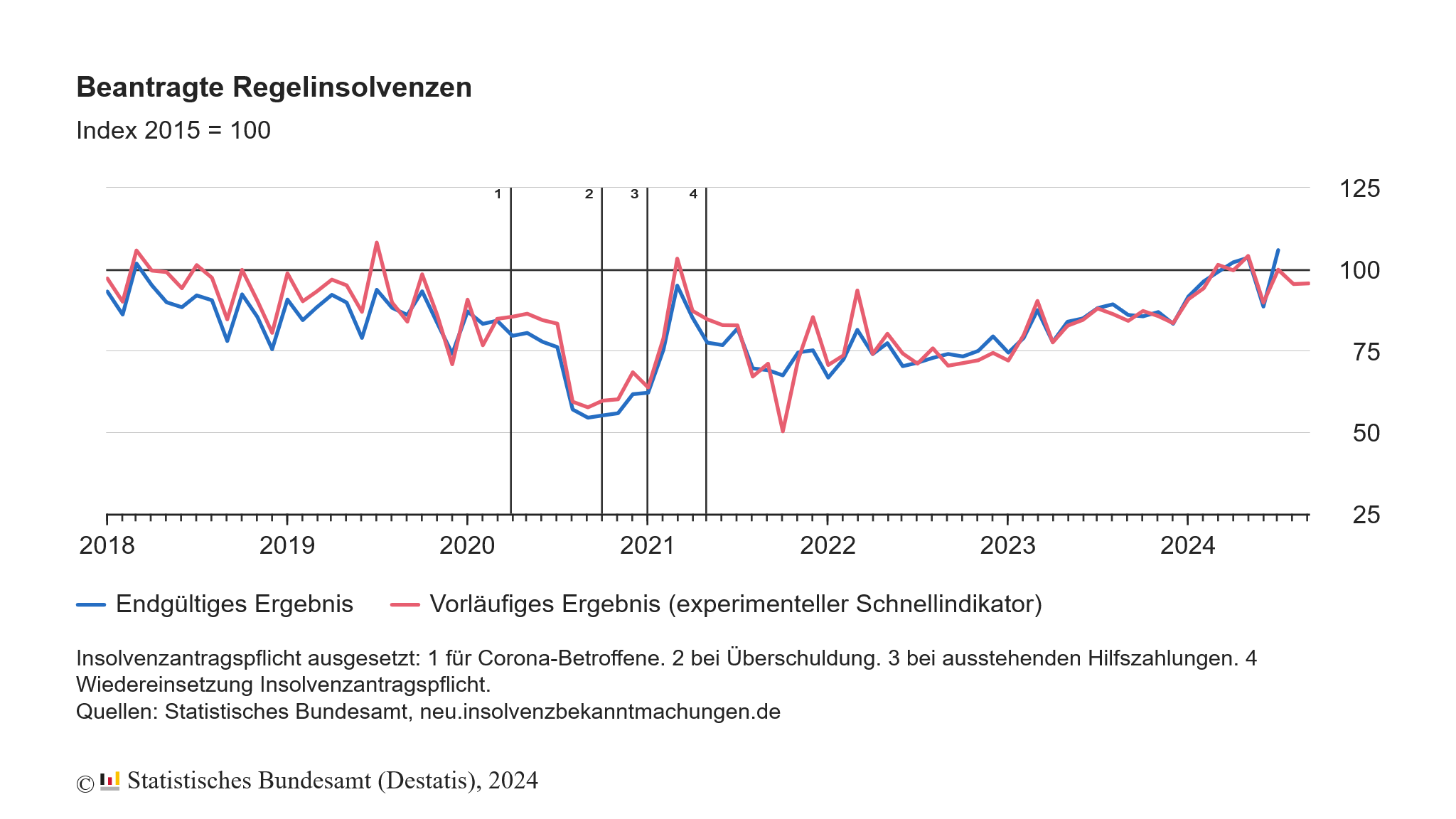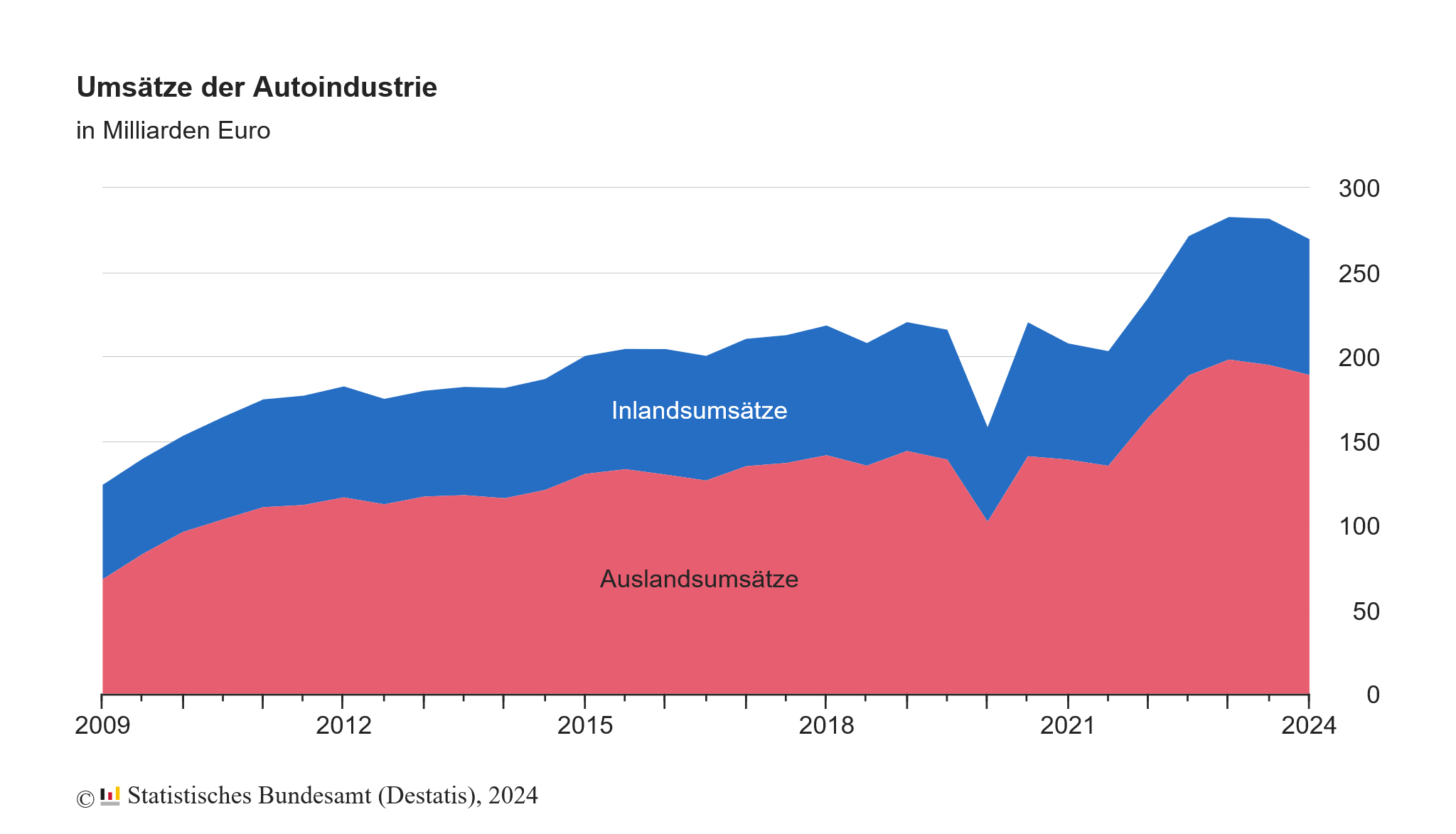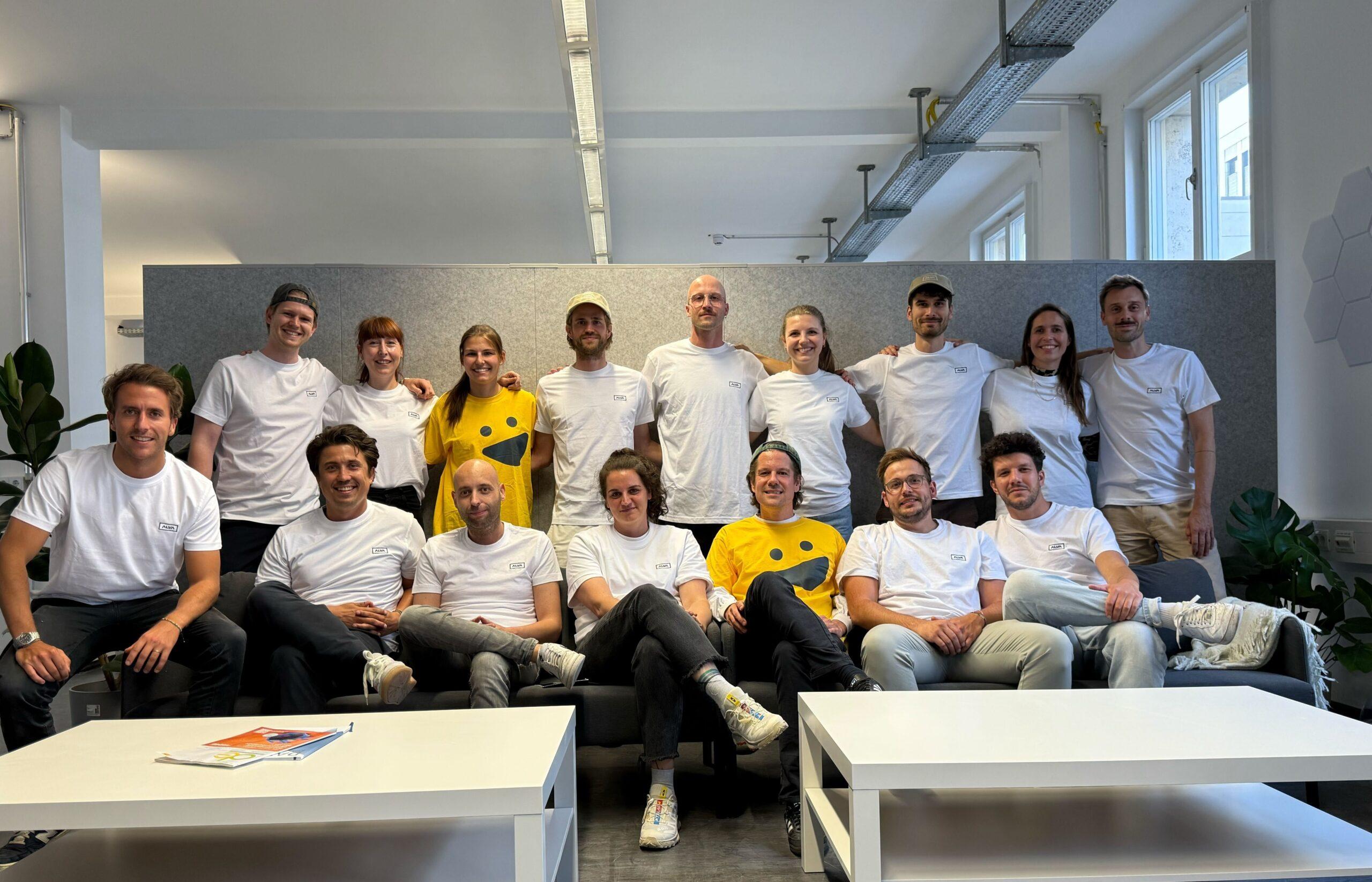20% of German companies will be using AI technologies in 2024

48% of companies with over 250 employees rely on AI, while small companies have some catching up to do.
Wiesbaden, November 25, 2024 - In 2024, one in five companies (20%) in Germany will be using artificial intelligence (AI) technologies. This is according to a recent survey by the Federal Statistical Office (Destatis), which covers companies with at least ten employees. Compared to 2023, when the proportion of AI use was 12%, this represents a significant increase of 8 percentage points. The use of AI was surveyed for the first time in 2021, when the share was 11%. The growing prevalence of AI technologies reflects the increasing digitalization of the economy and growing acceptance of modern technologies.
Large companies are leading the way
The survey shows that larger companies use AI significantly more often than smaller companies.
- 48% of companies with more than 250 employees use AI, an increase of 13 percentage points compared to the previous year.
- 28% of medium-sized companies (50 to 249 employees) use AI technologies, 12 percentage points more than in 2023.
- For small companies with 10 to 49 employees, the proportion is 17%, an increase of 7 percentage points.
The data shows that the use of AI correlates with the resources available and the technological infrastructure of companies. The question of whether the use of AI in small companies makes sense at all is not clarified in the study.
Popular technologies and applications
Companies that use AI make particularly frequent use of the following technologies:
- Text mining and written language analysis (48%),
- Speech recognition (47%),
- natural language generation (34%).
These technologies are primarily used in the following business areas
- Marketing and sales (33%): AI helps here with the analysis of customer data and the optimization of campaigns.
- Production and service processes (25%): Automations and quality controls are made more efficient.
- Company administration (24%): AI is being used in organization and management.
- Accounting, controlling and financial management (24%): This is where AI improves efficiency and accuracy.
Obstacles: Why many companies do not use AI
Despite the increasing prevalence, there are still many companies that do not use AI technologies. Of these, 18% have considered using it but have encountered challenges.
The most common reasons for not using AI are:
- Lack of knowledge (71%): The biggest stumbling block remains the lack of expertise in dealing with AI.
- Lack of clarity about legal consequences (58%): Many companies shy away from the legal uncertainties associated with AI.
- Data protection concerns (53%): Maintaining privacy continues to be a key challenge.
- Data quality and availability (45%): Without a suitable database, AI deployment remains difficult.
- Incompatibility with existing systems (44%): Outdated IT infrastructures often prevent integration.
- Costs too high (28%): Small companies in particular perceive AI technologies as cost-intensive.
- Ethical concerns (23%): Some companies are hesitant due to moral considerations.
In addition, 21% of non-users stated that the use of AI is not relevant to their business.
Background to the survey
The results come from the annual survey on the use of information and communication technologies (ICT) in companies. This survey is carried out with the support of the European Union and covers legally independent, economically active units with at least ten employees. As part of the survey, companies were able to give several reasons for not using AI, which illustrates the many barriers to the introduction of technology.
Conclusion: AI remains a growth factor for the economy
The data shows that AI is on the rise in Germany. Larger companies in particular are driving development forward and using AI to optimize processes, reduce costs and remain competitive. However, there are still hurdles, especially among smaller companies, which are reluctant due to a lack of knowledge and limited resources.
With the growing need for digitalization and automation, AI remains a key technology for the future competitiveness of the German economy. In combination with the tense situation in the production sector, German companies are being further impacted. To make matters worse, Germany itself does not have a leading AI model and is at risk of falling behind technologically.

Newsletter
Startups, stories and stats from the German startup ecosystem straight to your inbox. Subscribe with 2 clicks. Noice.
LinkedIn ConnectFYI: English edition available
Hello my friend, have you been stranded on the German edition of Startbase? At least your browser tells us, that you do not speak German - so maybe you would like to switch to the English edition instead?
FYI: Deutsche Edition verfügbar
Hallo mein Freund, du befindest dich auf der Englischen Edition der Startbase und laut deinem Browser sprichst du eigentlich auch Deutsch. Magst du die Sprache wechseln?
